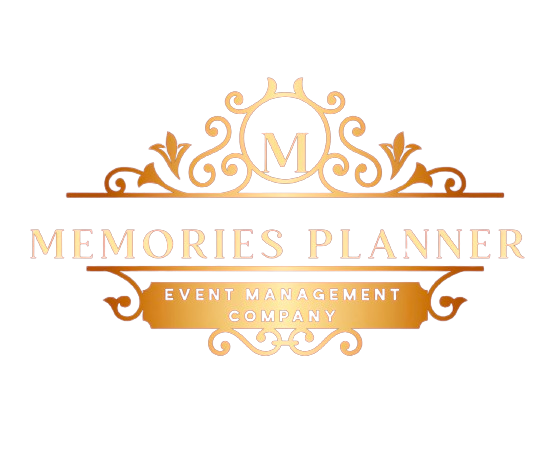
Event organizing is a multifaceted endeavor that ranges from intimate gatherings to grand-scale productions. The cost of organizing an event can vary widely based on several factors, including the size, location, type of event, and the level of detail involved. Understanding the various components contributing to the total cost is essential for effectively planning and budgeting.
- Type of Event
The type of event is a primary determinant of the overall cost. Corporate events, weddings, concerts, conferences, and private parties have unique requirements and cost structures.
- Corporate Events: These can range from small meetings to large conferences. Costs include venue hire, audiovisual equipment, catering, branding materials, and keynote speakers.
- Weddings are typically more expensive due to their emotional and social significance. Costs can include the venue, catering, decorations, attire, photography, and entertainment.
- Concerts and Festivals require extensive planning for staging, sound, lighting, security, and permits. High-profile acts can significantly increase costs.
- Private Parties: Costs vary based on the size and scope. Intimate gatherings at home may be less expensive, while larger parties with professional entertainment and catering can be costly.
- Venue
The choice of venue significantly impacts the cost. Factors influencing venue costs include location, size, facilities, and event duration.
- Location: Venues in prime locations or major cities typically cost more. Destination events can incur additional travel and accommodation costs.
- Size: Larger venues are more expensive. Matching the venue size to the expected number of attendees is crucial.
- Facilities: Venues with comprehensive facilities (e.g., in-house catering, audiovisual equipment, furniture) can reduce overall costs, while those requiring additional rentals can increase expenses.
- Duration: Longer events or those requiring setup and teardown time can incur higher rental fees.
- Catering
Catering often takes up a significant portion of the budget, especially for events like weddings and corporate functions. Costs depend on the type of service (buffet, sit-down meal, or canapés), the number of guests, and the menu choices.
- Food and Beverage: Gourmet or specialty menus are more expensive than standard options. Alcoholic beverages can also increase costs, mainly if an open bar is offered.
- Service: Hiring professional staff for serving and bartending adds to the cost. Some venues include service in their catering packages, while others may charge separately.
- Entertainment and Activities
Entertainment is crucial for many events, influencing the overall atmosphere and guest experience. Costs vary based on the type and popularity of the entertainment.
- Live Music and DJs: Professional bands, musicians, or DJs can range from a few hundred to several thousand dollars, depending on their reputation and the length of their performance.
- Speakers and Presenters: Substantial fees can be charged for high-profile speakers or presenters, especially for corporate events or conferences.
- Activities and Interactive Elements: Photo booths, games, and other interactive elements add to the overall experience and increase costs.
- Decorations and Theme
Creating a memorable ambiance often involves significant investment in decorations and theme-related elements.
- Floral Arrangements: Fresh flowers can be costly, especially for elaborate designs and installations.
- Lighting and Sound: Professional lighting and sound systems are crucial for more significant events and can be a major expense.
- Themed Decor: Custom props, backdrops, and specialty items to fit a specific theme can add to the cost.
- Marketing and Promotion
Marketing and promotion are essential for public events or those with a large audience to ensure attendance and success.
- Advertising: Costs can include digital marketing, social media campaigns, print ads, and more.
- Printed Materials: Flyers, posters, tickets, and programs contribute to marketing expenses.
- PR Services: Hiring a public relations firm to manage press releases and media coverage can add to the budget.
- Logistics and Staffing
Efficient logistics and adequate staffing are crucial for smooth event execution.
- Transportation: Costs can include shuttles for guests, equipment transportation, and travel for out-of-town staff or entertainers.
- Staffing: Hiring event planners, coordinators, security personnel, and cleaning staff are necessary for larger events and can be a significant cost.
- Permits and Insurance: Many venues and municipalities require event permits; insurance is often necessary to cover potential liabilities.
- Technology
Modern events rely heavily on technology for registration, communication, and engagement.
- Registration Systems: Online registration and ticketing platforms can charge fees per attendee.
- Event Apps: Custom apps for event schedules, networking, and updates are becoming increasingly popular but add to the cost.
- Audiovisual Equipment: High-quality AV setups, including screens, projectors, microphones, and sound systems, are essential for many events.
Budgeting and Cost Management
Effective budgeting and cost management are crucial for successful event planning. Here are some tips:
- Set Clear Objectives: Understand the goals and scope of your event to prioritize spending.
- Get Multiple Quotes: For each service, obtain several quotes to ensure competitive pricing.
- Track Expenses: Use event management software or detailed spreadsheets to monitor and control spending.
- Allocate Contingency Funds: Set aside a portion of the budget for unexpected expenses.
Conclusion
Numerous factors influence the cost of organizing an event, each adding to the complexity of budgeting and planning. Whether a small private gathering or a large corporate conference, understanding these components and managing them effectively is critical to a successful event. By carefully considering each element, obtaining competitive quotes, and tracking expenses, event organizers can ensure a memorable experience that stays within budget.
